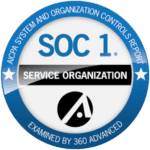Businesses are continually growing their global reach, making the importance of an efficient supply chain ever more critical. To stay ahead of competition, companies need to identify areas for improvement within their operations – one effective way to do this is through supply chain benchmarking (SCB). In this article, we’ll define what supply chain benchmarking is, why it matters and how you can get started.
What is supply chain benchmarking?
Supply chain benchmarking is the practice of comparing your company’s supply chain performance with that of other businesses in your industry or to industry standards. This analysis can help determine where you stand with regard to efficiency, effectiveness and cost efficiency as well as identify areas for improvement.
Why is it essential?
SCB is essential for helping you identify areas for improvement in your operations and remain competitive in the market. By comparing your supply chain performance against industry standards, you can identify best practices and opportunities to boost efficiency, reduce costs, and enhance customer service levels.
Are you eager to take your SCB efforts further?
Before you can begin, identify the key performance indicators (KPIs) relevant to your industry and business. These may include metrics like order cycle time, inventory turns, on-time delivery rates, and cost per unit. Once identified, collect data on your own supply chain performance and compare it with industry benchmarks or other companies within your sector.
Once you collect data, it can help identify areas where you are succeeding and those that require improvement. With this understanding, you can craft strategies to enhance supply chain operations and remain competitive in the marketplace.
Supply chain benchmarking is an invaluable asset for companies to optimize their supply chains and stay ahead of competitors in the market. By benchmarking against industry standards and other companies within your sector, businesses can identify potential areas for efficiency improvements, cost reductions, and enhanced customer service. With accurate data gathered through benchmarking, companies can develop strategies to streamline operations even further and remain ahead of rivals.
If you haven’t already begun benchmarking your supply chain operations, now’s the time to get started! Contact us today to get help.
Frequent Asked Questions:
Why Is Supply Chain Benchmarking Critical?
SCB helps organizations identify areas for improvement, reduce costs and boost efficiency. It also allows them to compare their results with competitors and industry leaders in order to stay ahead of the competition.
What are the different types of supply chain benchmarking?
Benchmarking in the supply chain can be broken down into three categories: internal benchmarking, competitive benchmarking and functional benchmarking.
How do I select the ideal benchmarking partner?
When selecting a benchmarking partner, you should take into account factors such as their experience and expertise, data accessibility, reputation, and cost of the process.
What are the key performance indicators (KPIs) used in supply chain benchmarking?
This type of benchmarking utilizes KPIs such as inventory turnover, order fulfillment time, delivery accuracy, customer satisfaction levels, supply chain cost structure and return on investment (ROI).
How can I measure the success?
SCB can be evaluated for success by comparing the organization’s performance before and after the benchmarking process, calculating its ROI, and measuring the effects of any changes made.
What are the advantages?
Benchmarking in supply chain management offers numerous advantages, such as improved performance, greater efficiency, lower costs, informed decisions and enhanced competitiveness.
How frequently should benchmarking be conducted?
SCB should be done periodically, depending on the organization’s needs and industry trends. However, it is recommended to conduct benchmarking every 2-3 years.
What are the challenges associated with supply chain benchmarking?
Benchmarking supply chain operations presents several challenges, such as finding the appropriate benchmarking partner, collecting accurate and pertinent data, safeguarding confidentiality of that information, and making changes based on benchmark results.
How can I begin using supply chain benchmarking?
Before you can begin with supply chain benchmarking, you must define your objectives, select a benchmark partner, collect relevant data, analyze it and implement any necessary modifications.




